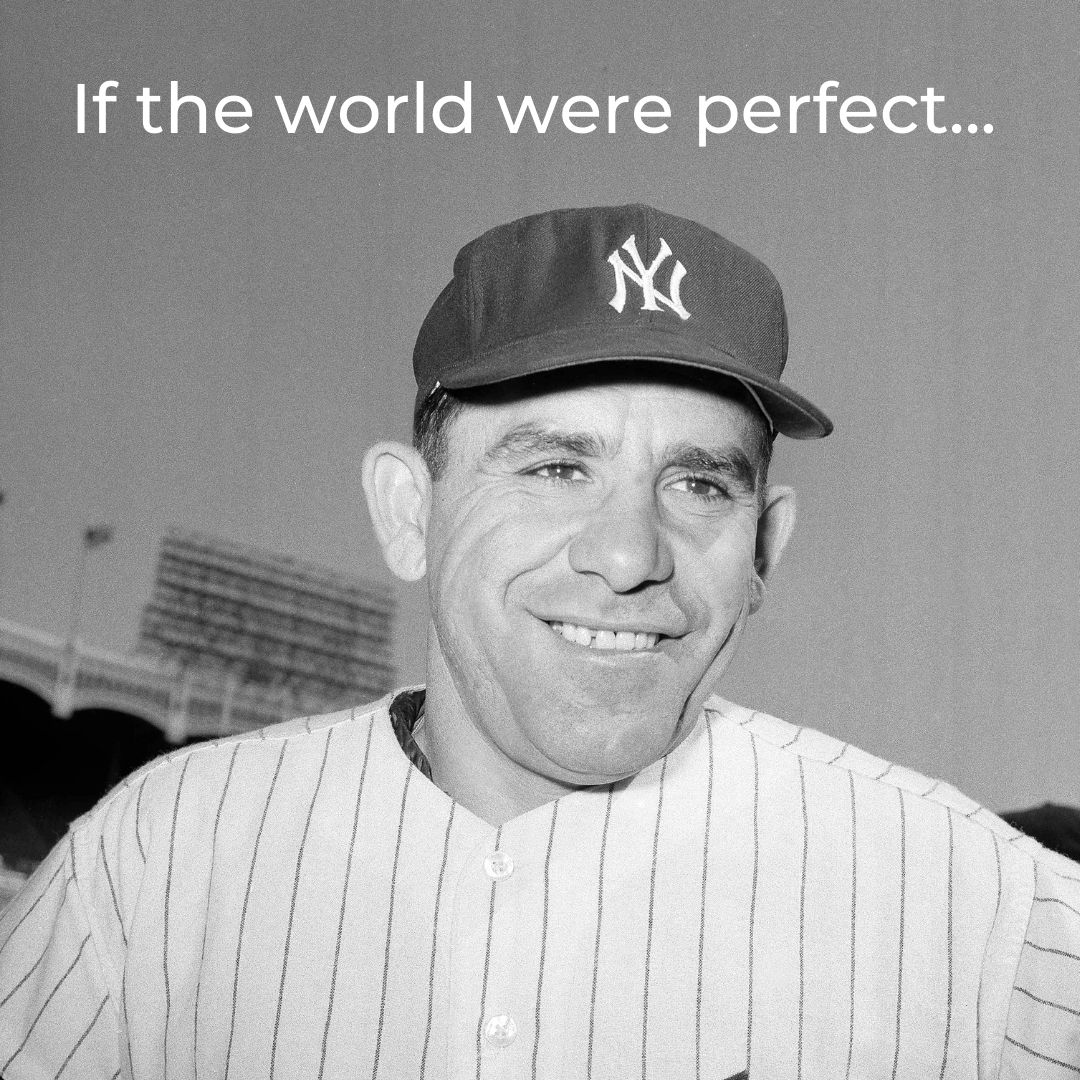
If the world were perfect, it wouldn't be.
— Yogi Berra
Lawrence Peter "Yogi" Berra quit school in eighth grade. At age 18, he enlisted in the Navy. Bored with training, he volunteered for a secret mission involving what he understood to be a rocket boat. "They asked for volunteers to go on a rocket boat," Yogi recalled later. "I didn't even know what a rocket boat was."
Part of a six-man crew on board what turned out to be a rocket-launching landing craft, Yogi found himself in the thick of the D-Day invasion, supporting troops, then landing on Utah Beach with his own crew. The following month, moving inland and into further combat in France, his unit was attacked by a German machine gun nest in Marseilles, and Yogi was shot in the hand. By the end of World War II, in addition to receiving a Purple Heart for his wounds in battle, he was also awarded a Distinguished Unit Citation and two additional stars for his service.
Berra then began his storied baseball career, playing for the minor league Newark Bears until called up to the Yankees in 1946. He'd be in pinstripes for well over two decades. A 15-time all-star, he won the American League Most Valuable Player award three times, was part of 10 world championship teams—more than any other major league player—and was elected to the Hall of Fame in 1972. He is widely regarded as one of the greatest catchers in the game's history.
Despite his remarkable war record and baseball career, Yogi is now probably best remembered for what came to be called "Yogi-isms," perhaps the most famous of which was uttered while he was managing the 1973 New York Mets. Asked late in the year if his team could come back from 9 games down to win their division, he sagely pointed out, "It ain't over til it's over." The Mets went on to win the pennant.
Everyone has a favorite Yogi-ism. Berra instructed younger players to pay attention in the dugout, insisting, "You can observe a lot by watching." Asked by a teammate why he never went to a particular pizzeria anymore, Yogi said, "Nobody goes there anymore. It's too crowded." Asked about games on the West Coast, he complained, "It gets late early out there." When a reporter queried him on why attendance was down, he responded, "If people don't want to come to the ballpark, no one's gonna stop them."
Though Yogi humbly told people, "I really didn't say everything I said," what's so great about his words is that if you spin around and squint a little, there's usually some profound wisdom on offer deep within them. "Always go to other people's funerals," he counseled. "Otherwise they won't go to yours." When asked how he came up with a Yogi-ism, he confessed, "I don't make 'em up. I don't even know when I say it. They're the truth. And it is the truth. I don't know."
Other than his remark when he was told that the mayor of Dublin was Jewish and replied, "Only in America," my favorite Yogi-ism goes like this: "If the world were perfect, it wouldn't be."
There are a few ways we can dissect this one after initially turning our heads in befuddlement. First, he's right—the world can't be perfect. It's impossible. Secondly, given human nature, it's probably the case that if everything in the world suddenly became perfect, we'd likely still find something wrong with it. Third, it's fair to say perfect isn't always what it's cracked up to be. It doesn't always wear so well. Finally, embedded in Yogi's astute observation is an oblique, but wise warning that pursuing the abstraction of perfection is a fool's errand anyway.
Oliver Burkeman is a British journalist who writes a blog intriguingly called The Imperfectionist. In it, he often urges his readers to stop chasing that imaginary moment we're convinced exists not too far away where all our problems disappear, our trials and tribulations end, and our "real lives" can then finally begin. Such a place, Burkeman assures us, just doesn't exist, and to believe that it does only delays our embrace of life and degrades our present experience. He advises us to get on with living, taking our imperfect world on its own terms and doing what he calls "the next necessary thing" each day. This seems like sound advice. Otherwise, we're merely inviting disillusionment and frustration that repeated collisions with reality inevitably bring—"like déjà vu," as Yogi might say, "all over again."
God of Grace — May I move forward with the next necessary thing, refusing to fall prey to the idolatry of perfection. Amen.
— Greg Funderburk





